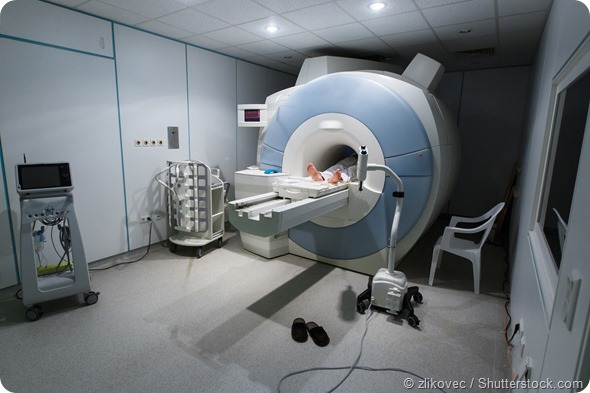Performing an MRI scan of men with suspected prostate cancer could spare a quarter of men from having to undergo prostate biopsy, according to a study published in The Lancet.

The use of MRI could enhance diagnosis and prevent unnecessary biopsy among men with cancer that is not aggressive. The study also suggests that using MRI could reduce over-diagnosis ─ when men are diagnosed with cancer, but the cancer does not cause them harm.
A multi-parametric MRI (MP-MRI) scan shows how large a tumor is, how densely its cells are packed and how well it is linked to the bloodstream - all factors that help determine how aggressive a cancer is.
“Our results show that MP-MRI should be used before biopsy. Our study found that using the two tests could reduce over-diagnosis of harmless cancers by 5%, prevent one in four men having an unnecessary biopsy, and improve the detection of aggressive cancers from 48% to 93%,” said lead author of the paper Hashim Ahmed (UCL, UK).
Men usually have a prostate biopsy if they have symptoms of prostate cancer or when the result of a prostate specific antigen (PSA) test is high. However, the PSA test is not always accurate and many men have a biopsy unnecessarily. The biopsy can also be inaccurate, since random tissue samples are used, meaning it does not necessarily show how aggressive a cancer actually is.
“Because of this some men with no cancer or harmless cancers are sometimes given the wrong diagnosis and are then treated even though this offers no survival benefit and can often cause side effects,” says Ahmed.
For the study, 576 individuals with suspected prostate cancer were scanned by MP-MRI before undergoing two forms of biopsy – the template prostate mapping (TPM) biopsy (for control purposes) and the standard transrectal ultrasound-guided (TRUS) biopsy, which is the most commonly used form.
According to the TPM biopsy results, less than half (40%) of the men had aggressive cancer. Of these men, MP-MRI accurately diagnosed aggressive cancer in 93% of the men, compared with only 48% by TRUS biopsy. In addition, among men who had a negative MP-MRI scan, 89% did not have cancer or the cancer was harmless.
The team suggests that performing MP-MRI before TRUS biopsy could identify men with harmless cancers who do not automatically need a biopsy, but could undergo monitoring instead. Those who are suspected to have aggressive cancers could undergo TRUS biopsy to confirm their MP-MRI result.
However, although the two-test combination is an improvement over the biopsy alone, it is still not entirely accurate and men would still require monitoring after being scanned by MP-MRI.
“Biopsies will still be needed if an MP-MRI scan shows suspected cancer too, but the scan could help to guide the biopsy so that fewer and better biopsies are taken,” concludes Ahmed.
Source